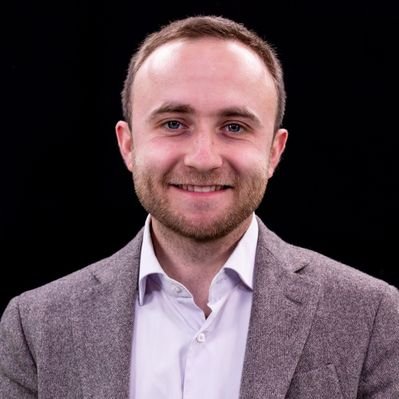The 8th Congress of World and Traditional Religions in Astana, Kazakhstan placed the message of peace at its heart, symbolized by the inauguration of the city’s new Park of Peace.
A congress for peace
More than 100 delegations from 60 countries gathered under the theme “Dialogue of Religions: Synergy for the Future.” Kazakhstan’s President Kassym-Jomart Tokayev set the tone with a silent prayer for peace and a warning against rising global tensions, urging dialogue based on shared human values.
Pope Leo XIV sent a message of support, quoting Nostra Aetate from the Second Vatican Council, affirming the Church’s respect for all that is true and holy in other religions. His words were delivered by Cardinal George Koovakad, newly appointed Prefect of the Dicastery for Interreligious Dialogue, who led the Catholic delegation:
I feel this event was much needed. After the pandemic, we thought life would be peaceful and calm — but it did not turn out that way.
Synergy and new challenges
That sense of urgency was echoed by one of the organizers, Ambassador Bulat Sarsenbayev:
“This year’s theme is ‘Synergy for the Future.’ Joint efforts are needed — synergy is needed — to address the questions and challenges we face today.”
And this year, one new theme entered the spotlight: Artificial Intelligence.
“We must be different from artificial intelligence — through spirituality. The role of world religious leaders is very important here,” Sarsenbayev emphasized, “they carry this spirituality, they must be beacons for their flock and for believers.”
Diplomacy and fraternal meetings
The two-day Congress featured plenary sessions, roundtables, and a youth forum. Topics ranged from peacebuilding and extremism to climate change and sustainable development. For the first time, the Muslim World League joined the gathering.
Gulsana Kozhabai, Chairperson for the International Center for Interfaith & Interreligious Dialogue, said, “We are happy to welcome leaders from the Muslim World League. Dr. Al Isa came to Kazakhstan for the first time. We are also glad to see Patriarch Kirill of Russia and to receive his contributions to the Congress.”
Patriarch Kirill of the Russian Orthodox Church declared: “A world that denies God is a world without a future.” He made no reference to Ukraine, and no Ukrainian delegation was present.
Beyond the public sessions, private meetings allowed for quiet diplomacy. Cardinal Koovakad met with Patriarch Kirill and Catholicos Aram I of the Armenian Apostolic Church.
His Eminence commented, “That [meeting] was very touching and meaningful, when we had a moment of truly fraternal exchange of ideas and shared concerns, because everyone is worried about the state of the world.”
The voice of the Catholic Church
The Catholic delegation also brought fresh perspectives. For the first time, the Pope’s paediatric hospital — Bambino Gesù — took the stage.
Its president, Tiziano Onesti, called for a Charter of Principles for the Holistic Care of Incurable Children.
During the visit, Bambino Gesù also expanded cooperation with Kazakhstan’s University Medical Center, signing a letter of intent for joint work in epilepsy, autism, paediatric transplants, and oncology.
“We can collaborate on issues of common interest — sharing experiences, therapies, and research — always with the goal of helping children live better lives,” noted Onesti.
Other delegates reminded that dialogue must lead to action.
Archbishop Tapio Luoma of the Evangelical Lutheran Church of Finland said, “When we speak about peace, we also need to show that we are not hypocritical, but we are serious when we talk about peace.”
Fr. Laurent Basanese, SJ, who is Head of the Office for Relations with Muslims at the Holy See added, “If we want to dialogue we need to walk toward the others so to be open and flexible in this relation.”
David Rutstein, Secretary General from the Bahá’í International Community, commented, “If leaders from different religions can sit in the same room, maybe people from the same town can do the same. That gives me hope.”
The Catholic Church in Kazakhstan represents only about one percent of the population. Yet its role is significant, says Archbishop Tomasz Peta of Astana. He added:
“I think that by seeing and hearing Catholics many can realize that the Catholic Church is something special and that it stands out among the many religious traditions.”
The hope of dialogue
The Congress also gave space to the younger generation. At the Second Youth Forum, young participants reflected on peace and dialogue.
Mariia Chernaia participated and said, “I don’t think we are erasing boundaries. On the contrary, we are becoming aware of our own value and the value of other people around us.”
Amid the calls for action, Orthodox Bishop Gennadiy of Kaskelen reminded participants that dialogue must remain rooted in the spiritual dimension of human life:
“We see that we share certain common values, the most important of which is to draw the world’s attention to the existence of spiritual life and spiritual foundations.”
Astana Declaration of Peace 2025
The Congress concluded with the Astana Declaration of Peace 2025 — condemning extremism, affirming the dignity of all religions, and calling for the protection of families and children. Cardinal Koovakad read the declaration on behalf of the assembly:
“We, the people who believe in God, are the majority in the world. But too often we are silent, or we are divided. So, it is important that we come together. … I felt it was an honour to give voice to that declaration.”
SIGN UP FOR OUR NEWSLETTER HERE
Adapted by Jacob Stein
Produced by Alexey Gotovskiy; Camera by Vladimir Czerny; Video Edited by Ilaria Chimenti; Special thanks & Credits to Ambassy of Kazakhstan to the Holy See, Dicastery for Interreligious Dialogue, Bambino Gesù Paediatric Hospital, International Center for Interfaith & Interreligious Dialogue

Alexey Gotovskiy serves as a journalist, producer, and manager at the EWTN Vatican Bureau. Born in the former Soviet Union, he holds a graduate degree in Church Communications from the Pontifical University of the Holy Cross and has produced over 200 episodes of EWTN "Vaticano," covering the life of the Universal Church.








